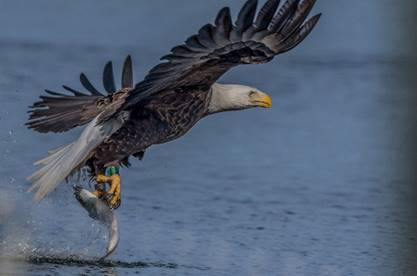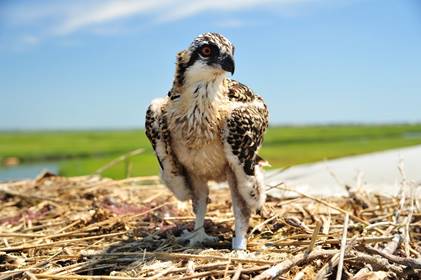The Murphy Administration is proposing to remove the bald eagle and osprey from the state’s list of endangered species, reflecting decades of work to restore these iconic birds to New Jersey’s landscape, Environmental Protection Commissioner Shawn M. LaTourette announced.
The proposed de-listing is contained within a Department of Environmental Protection rule proposal published this week in the New Jersey Register and is based on a finding that populations of these birds have recovered to the point where the survival of these species in the state is no longer in jeopardy.
“The de-listing of eagles and ospreys is a milestone in the history of wildlife conservation in New Jersey and is a testament to the dedication of DEP professionals and volunteers who over the years stood watch over nests in all forms of weather, nurtured hatchlings, and worked tirelessly to educate the public about the importance of sustaining wildlife diversity,” said Commissioner LaTourette.
“Because of their efforts, people across the state today can thrill at the sight of bald eagles gliding above their massive tree-top nests or ospreys diving into a coastal creek to snare a fish,” Commissioner LaTourette continued. “While we celebrate these successes, we must remain vigilant in ensuring that these species continue to thrive and be ever mindful that endangered species continue to need our help.”
“The recovery of these species from near extirpation during the 1980s in New Jersey is a dramatic example of what is possible when regulations, science, and public commitment come together for a common purpose,” said David Golden, Assistant Commissioner of NJDEP Fish & Wildlife. “With focused attention on other species of greatest conservation need, future recovery success stories are also possible.”
Under the New Jersey Endangered and Nongame Species Conservation Act, which celebrated its 50th anniversary this past December, NJDEP Fish & Wildlife’s Endangered and Nongame Species Program (ENSP) is responsible for protecting threatened, endangered and nongame species.


No comments:
Post a Comment